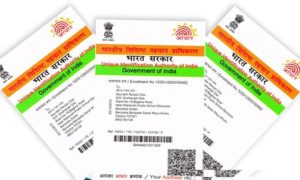House rent allowance (HRA) is an essential part of the salary structure for employees. It is a portion of the salary that is paid to individuals and comes with specific tax benefits. Here are the key considerations and provisions regarding HRA and its implications from a tax perspective.
Also Read– Including Your Family’s Aadhaar In mAadhaar: A Step-By-Step Guide
HRA Eligibility An individual must be a salaried employee and reside in a rented accommodation to be eligible for tax benefits on HRA. Self-employed individuals cannot claim tax benefits on HRA.
HRA exemption calculatorThe amount of HRA exempt from tax is determined based on the least of the following three factors:
the actual HRA received from the employer
annual rent paid minus 10% of the salary
50% of the employee’s basic salary (for employees in metro cities) or 40% of the basic salary (for non-metro cities).
Rent payment proofTo avail tax exemption on HRA, employees must provide documentary evidence of rent payment, such as rent receipts or a rental agreement, to their employers.
Residing in their own house If an employee receiving HRA resides in their own house, they cannot claim exemption under the Income-tax Act. They must actually live in a rented accommodation.
HRA exemption: Important points to note
It is important to have a formal rental agreement between the landlord and tenant, specifying details such as rent amount, tenancy duration, and other terms and conditions.
Tax benefits for HRA are only available if the individual has opted for the old tax regime.
Read More:- Petrol, Diesel Fresh Prices Announced: Check Rates In Your City On February 28
With inputs from Centre for Investment Education and Learning content which appeared in Economic Times





































